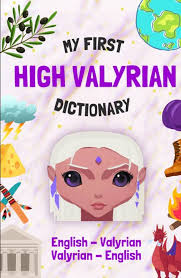The Vital Role of Dictionaries in Modern Language Use

Understanding the Importance of Dictionaries
Dictionaries are indispensable tools in our daily encounters with language, serving not only as a repository of words but also as a guide to their meanings, pronunciations, and usage. In an age dominated by digital communication, the relevance of dictionaries has transcended traditional publishing, carving out significant roles in education, linguistics, and even technology.
The Evolution of Dictionaries
Historically, the first dictionaries appeared in the 17th century, compiled primarily for scholars and students. Now, with the advent of the internet, online dictionaries have revolutionised how we access language reference tools. Websites like Merriam-Webster and Oxford English Dictionary, alongside mobile applications like Dictionary.com, provide instantaneous access to definitions, synonyms, and translations, catering to a global audience.
Current Trends and Usage
The advent of artificial intelligence and machine learning has also influenced dictionary development. Modern dictionaries now incorporate real-time data to reflect language evolution promptly; terms such as ‘selfie’ and ‘hashtag’ have found their place alongside traditional vocabulary. Moreover, dictionaries support language learners through features such as audio pronunciations and usage examples, fostering a deeper understanding of context and nuance.
Significance for Education and Professionals
For students, dictionaries are crucial in developing vocabulary and comprehension skills. Educators advocate their use as a means to engage students in learning language arts effectively. For professionals, precise language is key, and dictionaries aid in eliminating ambiguities in communication. In fields such as law, medicine, and science, where terminology can be complex and nuanced, dictionaries serve as essential references ensuring clarity and accuracy.
Conclusion
As we continue to communicate more in a digital-first world, dictionaries will only grow in importance. They not only facilitate better understanding and usage of language but also celebrate the richness of our linguistic heritage. The ongoing evolution of dictionaries signifies their adaptability and enduring value as tools that help bridge communication gaps across cultures and generations.









